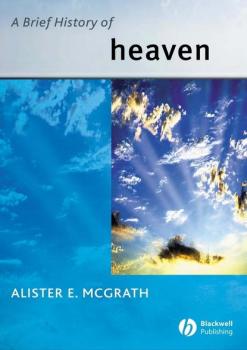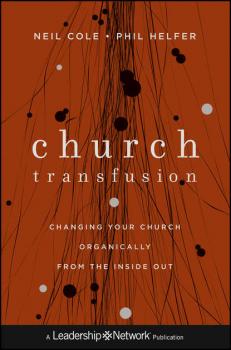Зарубежная эзотерическая и религиозная литература
Различные книги в жанре Зарубежная эзотерическая и религиозная литератураA Brief History of Heaven
This engaging book by one of today's best-known Christian writers explores the history of heaven, from its origins in biblical writings to its most recent representations. A short, accessible book on the history of heaven. Draws together representations of heaven by a wide range of writers, theologians, politicians and artists. Covers literary works such as Dante's Divine Comedy, Bunyan's Pilgrim's Progress, and the poems of George Herbert. Considers discussions by Marx and Freud of heaven's role in society. Based on serious scholarship but is ideal for the non-specialist who wants to learn more about the idea of heaven. Alister E. McGrath is one of today's best-known Christian writers.
Church Transfusion
Just as our life is in our blood, the life for Christ’s body is in His blood. Changing a church is more than a new goal or direction. Our churches need more than an organizational transition; we need a full transfusion of Jesus' blood, His life, within every disciple. Anything less than that will only perpetuate more of the dysfunction and unhealthy church practices that have already plagued us for too long. We are in desperate need of the internally transforming power of the gospel of grace and the presence of Christ so that our salvation is then worked out in a way the rest of the world will notice. It isn’t enough that we believe in the facts contained in the gospel, we must allow the gospel itself to infect our souls and transform us from within. The DNA of Jesus' lifeblood is needed in our churches and nothing shy of a full transfusion that touches every cell will be sufficient. In this book Neil Cole (author of Organic Church, Church Transfusion and Journeys to Significance) and Phil Helfer, co-founders of Church Multiplication Associates, will first point out that change is possible with God, but only with God. In the second half of the book they will lay out some of the actual practical considerations to weigh if you want to release real organic health in your church. Using multiple examples of very different kinds of churches that have been through the process, the authors present ways that leadership and practices need to change in order to release organic church movements from their midst. Chapters cover: Leadershifts necessary Detoxification from dependence issues. How to ignite change virally. How to grandparent movements. How to measure success in movements. This book (another in the Leadership Network series) applies organic life principles to established churches with practical help that is holistic and natural. The content in this book will be helpful whether you are pastor of an established church or wanting to revitalize a small organic church. Jesus didn’t die and rise from the dead so that we can be like everyone else in the world. Our faith is more than just a better doctrine or a bigger goal with a capital giving campaign; it is a better life. Jesus is the difference, and what a difference he makes…don't be satisfied with less.
Dawkins' GOD
Alister E. McGrath is one of the world’s leading theologians, with a doctorate in the sciences. Richard Dawkins is one of the bestselling popular science writers, with outspoken and controversial views on religion. This fascinating and provoking work is the first book-length response to Dawkins’ ideas, and offers an ideal introduction to the topical issues of science and religion. Addresses fundamental questions about Dawkins’ approach to science and religion: Is the gene actually selfish? Is the blind watchmaker a suitable analogy? Are there other ways of looking at things? Tackles Dawkins’ hostile and controversial views on religion, and examines the religious implications of his scientific ideas, making for a fascinating and provoking debate Written in a very engaging and accessible style, ideal to those approaching scientific and religious issues for the first time Alister McGrath is uniquely qualified to write this book. He is one of the world’s best known and most respected theologians, with a strong research background in molecular biophysics A superb book by one of the world’s leading theologians, which will attract wide interest in the growing popular science market, similar to Susan Blackmore’s The Meme Machine (1999).
Ancient Judaism
This book is a major contribution to the sociology of religion and to religious and biblical studies. Beginning from the classic work of Max Weber, the author analyses the origins of Judaism in the light of more recent scholarship. The result is a work that will become a standard point of reference in its field, and will be of great interest to the general reader as well as the specialist.
After Terror
After Terror presents sustained reflections by some of the world's most celebrated thinkers on the most pressing question of our time: how can we find ways to defuse the ticking bombs of terrorism and excessive interventions against it? It offers an antidote to the fatalistic global holy war perspective that afflicts much contemporary thought, focusing instead on the principles, issues, and acts needed to shift course from alienation and conflict to a path of sanity and goodwill among cultures and civilizations. The central aim of the book is to advance contemporary thinking on the causes and implications of 9/11 and thus provide the essential elements of a blueprint for humanity. It features 28 original essays by some of the world's leading public figures, scholars, and religious leaders, including Benjamin Barber, Zbigniew Brzezinski, Jean Bethke Elshtain, Amitai Etzioni, Bernard Lewis, Martin Marty, Queen Noor, Joseph Nye, Judea Pearl, Jonathan Sacks, Ravi Shankar, Bishop Desmond Tutu, E.O. Wilson and James D. Wolfensohn. After Terror attests to the power of dialogue and mutual understanding and the possibility of tolerance, respect, cooperation, and commitment. Without ignoring the dangers of the modern world, it points to a future in which people can celebrate both the fundamental sentiments and interests that we share and the diversities that make us human.
Unmasking Buddhism
An ideal introduction to Buddhism for anyone who has unanswered questions about one of the world's largest and most popular religions. A fascinating, short book that challenges us to strip away existing preconceptions we may have about Buddhism Considers questions such as: Can we talk of Buddhism as a unified religion or are there many Buddhisms? Is Buddhism a religion of tolerance and pacifism as many people think? And is Buddhism a religion without god(s), or is it more of a philosophy than a religion? Traces the basic history, beliefs and nature of Buddhism in easy-to-understand language Written by renowned Buddhist scholar, Bernard Faure, it is an ideal introduction for anyone who has unanswered questions about one of the world's largest and most popular religions
True Religion
Through reference to plays, poetry, novels, films and painting, this manifesto traces the genealogy of ‘true religion' in the western world and makes six controversial claims about the past, present and future of religion. Traces a transformation in the way religion is understood and performed in the western world. Makes several major claims about the past, present and future of true religion. Uses cultural metaphors as ways into understanding religion. Refers to plays, poetry, novels, paintings and films, including Romeo and Juliet, Moby Dick, The Exorcist and Stigmata. Suggests that the end of wars between nations could result in a return of wars of faith. Part of the prestigious Blackwell Manifestos series.
Science and Religion
From the heliocentric controversy and evolution, to debates on biotechnology and the environment, this book offers a balanced introduction to the key issues in science and religion. A balanced, introductory textbook which fully spans the interface between science and religion, and includes illustrations of scientific concepts throughout Explores key historical issues, including the heliocentric controversy, and evolution, but also topics of current importance, such as biotechnology and environmental issues Appendices include a wide range of biblical readings; excerpts from early philosophers, theologians and scientists, including Aristotle, Aquinas, Hume, Kant, Galileo, Newton, and Darwin; and short works from twentieth and twenty-first century scientists and theologians Accessibly structured in to sections covering cosmology, evolution, and ethics in a scientific age Provides significant coverage of scientific information and balanced explanations of the key debates for introductory students
Christ and Culture
Leading theologian Graham Ward presents a stimulating series of reflections on Christ and contemporary culture. Takes as its starting point Niebuhr’s famous volume on ‘Christ and Culture’ published in the 1970s Explores representations of Christ from sources as diverse as the New Testament and twentieth-century continental philosophy Considers Christ and culture in the light of contemporary categories such as the body, gender, desire, politics and the sublime Develops an original and imaginative Christology rooted in Scriptural exegesis and concerned with today’s cultural issues The author has been described as ‘the most visionary theologian of his generation’.
Judaism For Dummies
Your plain-English guide to Judaism Whether you're interested in the religion or the spirituality, the culture or the ethnic traditions, Judaism For Dummies explores the full spectrum of Judaism, dipping into the mystical, meditative, and spiritual depth of the faith and the practice. In this warm and welcoming book, you'll find coverage of: Orthodox Jews and breakaway denominations; Judaism as a daily practice; the food and fabric of Judaism; Jewish wedding ceremonies; celebrations and holy days; 4,000 years of pain, sadness, triumph, and joy; great Jewish thinkers and historical celebrities; and much more. Updates to the «recent history» section with discussions of what has happened in the first decade of the twenty-first century including: the expansion of orthodox political power in Israel; expansion of interfaith work; unfortunate recent anti-Semitic events; and other news Expanded coverage of Jewish mysticism and meditation, which has become increasingly popular in recent years New coverage on Jewish views of morality, including birth control, homosexuality, and environmental concerns Revised recipes for traditional Jewish cooking, updated key vocabulary, and Yiddish phrases everyone should know Jews have long spread out to the corners of the world, so there are significant Jewish communities on many continents. Judaism For Dummies offers a glimpse into the rituals, ideas, and terms that are woven into the history and everyday lives of Jewish people as near as our own neighborhoods and as far-reaching as across the world.









